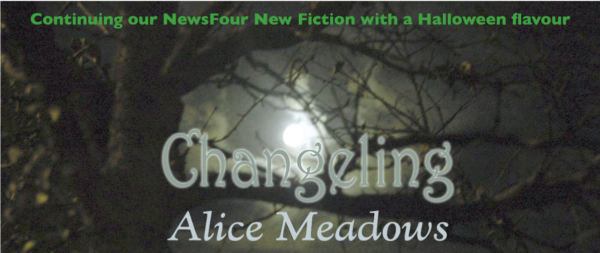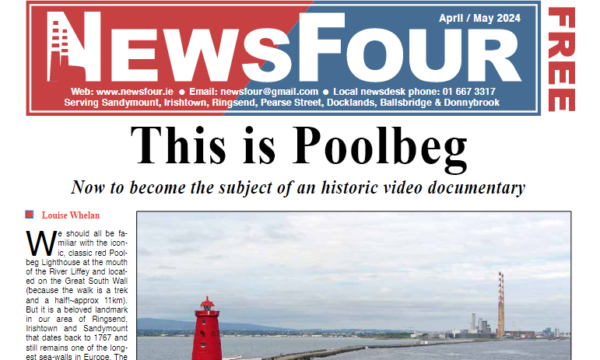
They whispered that her sister was a changeling but Orla knew that was a lie. She was in fact human, all too human as it transpired.
But in this small town superstition still ran deep.
Narrow minds. People clung to the old ways like comfort.
You see, Brid had been born on a halloween night, around midnight too to make matters worse, which contributed in no small way to the dangerous talk that spread of her origin. On the eve of All Saints’ Day it is said that the veil between the worlds is thin and the fae can travel through, and that, when the notion takes them they sometimes steal a human child and replace it with one of their own. This child is then known as a changeling. The reasons behind the fae’s actions are deep and unfathomable. It may be that they take a fancy to a particular baby, or they might want one of their own to grow up among humankind. However, wiser heads say it’s something to do with healing between the species of fae and human.
Being a sickly child Brid was somewhat shy and diffident growing up. Not at all like Orla with her gangly limbs, always to be found out running across the fields. The term ‘odd’ can have very loose connotations. It meant boys tended to eschew her for one thing, and she never married. Orla suspected some people were actually afraid of her sister, although she was the gentlest creature she knew. The truth was Brid suffered from a rare autoimmune disease, which following a serious illness and complications after a botched operation left her dead at 27.
Although only four or five herself Orla could recall the night her sister came into the world. There was a palpable excitement mixed with trepidation in the air. Old Mrs. Kettle, the midwife, had done terrible muttering. Shaking holy water everywhere and looking at everyone with more than her usual suspicion. And she made sure the household kept vigil over the frail little body throughout the night, until the Witching Hour had passed. Mrs. Kettle even put a piece of iron into the child’s cot. “No fairies can come near her now,” she pronounced, screwing up her wrinkled face into a fearsome grimace; her words sounding like retaliation.
For all that the child’s father mentioned he heard a scraping noise outside the house, and when morning came there were strange tracks just outside the kitchen window that had never been satisfactorily accounted for. Further, it was said strange flickering lights were seen around the bog of Gortnamore, beyond Mangan’s disused quarry where the old fairy fort stood. And old Nancy Durum with the bad hip swore to the day she went to the grave herself that she heard pipers that night, declaring she would not mistake the sound because she knew fairy rades when she heard them; the congregation of the Sidhe. But then most didn’t take much notice of her.
But that was in the past.
Orla now looked out through the small window with its lace curtain obscuring the bottom half. The evening was drawing in, and with it the yellow and amber leaves unhinged from almost skeleton trees, softly touched the ground. It was the time of year when death claimed things back to itself. At the time of Brid’s death there were whispers that she ought not be interred in the cemetery. Holy ground and all. But Father John saw to it that there would be no argument. He knew, she always suspected. And so Brid lay in a nice plot under the old laburnum tree in the west corner. She recalled the day she died, thinking she was only sleeping when she walked into the room. She even imagined that Brid’s hand was still warm, but when she held it for a while and saw the pallor on her cheeks she knew that her sister was no more. A thing, like the leaves that had broken free.
Orla looked at the clock on the old dresser. It was time. She slipped into her black shoes, her button down coat, and tossed her beret fashionably at an angle on her head. Then, pulling their back kitchen door behind her, left the house where she had spent so many happy days with Brid, and set her face for the cemetery.
Ghoulish pumpkin faces lit up every window and garden. Here and there skeletons sporadically hung from doorways, other homes were sealed off with yellow and black tape. Do not enter. Contaminated zone. While inside children played games; bobbing for apples, blind man’s bluff, snap apple, all the time gorging themselves on apples and berries, hazel nuts, roast nuts. exotic nuts, and chocolate of every type. Then, with breathless anticipation biting into warm soft barmbrack, and hot tart smothered with cream, made with the fruits of the season, while adults opened bottles of different delights. Out in the streets yet more children were making their way from house to house pretending to be Dracula, a newly infected zombie, or a favourite from a current horror film, dressed to match. Their threat of bringing down every pestilence on the land easily assuaged by the promise of sugary treats. Squealing in delight and squabbling over what particular fancy they got that their neighbour was denied, they reclaimed the streets. Their beautiful childhood innocence burned like a supernova. This was the time to be alive. This was Halloween.
Orla walked up through the town, past the post office, Morgan’s pub, it’s windows emitting a yellowy glow that bespoke of happy contented dwellers within, Nelly Byrne’s shop, the hub of the town’s social life, on passed the little disused pump that sat on the sad old scrap of grass which passed for a fairgreen. Finally arriving at the wide Grange crossroad and down another 100 metres to where the church stood within a field of sleeping souls, it’s grey façade and half steeple casting a grim shadow.
Putting on her gloves Orla lifted the latch of the cemetery’s black iron gate. Its initial whining squeak of resistance quickly faltered as it fell back against the eggshell bush allowing her access to the dark and lonesome home of the dead. She moved slowly past the old, limestone headstones, many leaning over like they were weary standing guard over the deceased, while others had already succumbed to time and lay defeated on the hoary grass. Arriving at Brid’s grave she felt a sense of peace that reason couldn’t explain. The dusk was passing now, replaced by wispy droplets of night. And the yellow autumnal moon rising behind dark gnarled trees already cast the late October night in a ghostly pallor. It was their time.
And then she heard it. She didn’t have to strain. The first plaintive notes of the Pan pipes licked the night air and the twinkling of ethereal light appeared over the old fort hill. She knew the procession had entered the human realm. Oonagh leading the way, of course, resplendent on her tall white steed, Bren by her side with his fine red beard. Their love had lasted a thousand years. Orla’s heart filled with joy, anticipation. She had done her job and had been a companion to the ailing child, now she was no longer needed. Tonight she will go home. Before dawn she will dance once more in the Seelie Court with other trooping fairies of the Sidhe.
Alice Meadows was born in Sandymount but now lives in the Midlands. When not writing she can be found walking through the bogs and fields talking to the wildlife. She sometimes thinks she might be a changeling herself!



